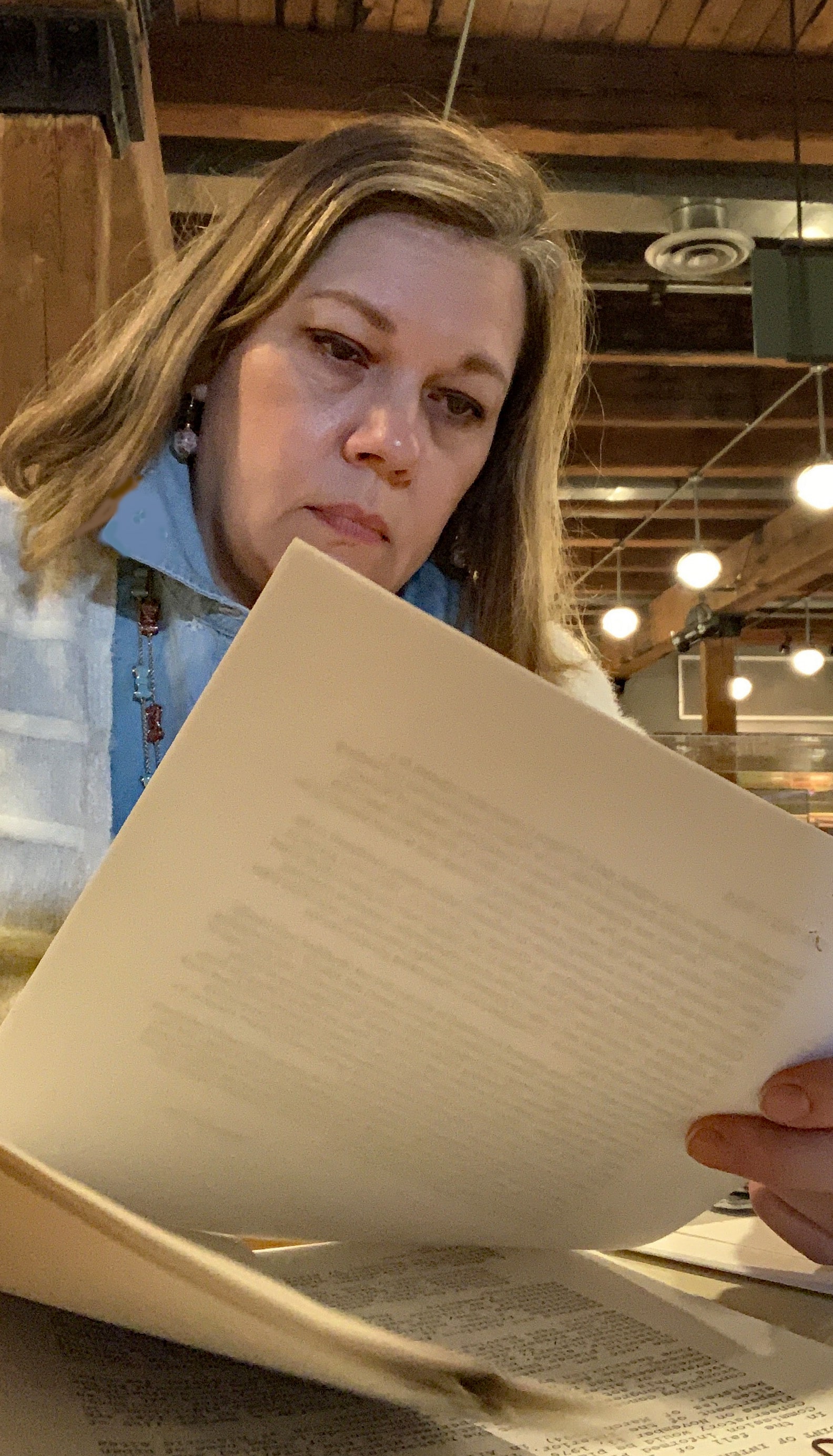This story is part of our Back to School series. To see more stories like this, check out our History curriculum. Follow Very Local on Facebook & Instagram for updates.
Sue Morris has always been diving deep into stories.
In her career working as a therapist, her passion was helping clients explore their own stories. Now, as a historian and writer behind “The Historical Dilettante,” Morris delves into archives across the city to share the hidden stories of Pittsburgh.
Beginnings of “The Historical Dilettante”

“The Historical Dilettante” started out as a personal project for Morris. While she’s always been interested in the history of Pittsburgh, her project began formally in 2012, when she began researching the Monongahela House—the city’s first grand hotel standing at the corner of Smithfield Street and Fort Pitt Boulevard downtown. The19th-century hotel hosted presidents, historical figures, and served as an important link in the underground railroad but was demolished when it fell into disrepair in the 1930s.
Morris explored the now-demolished hotel’s history and uncovered more untold threads, more historical characters, locations, and stories of the region that had never been formally explored.
“The more I read, the more I learned, and the more I realized there were things in Pittsburgh’s history that just didn’t get talked about,” says Morris.
Morris credits “obsessive nature” around research to her experience in social work. “I was working in research protocols,” Morris explains, or formal patterns of study.
It’s always been about asking the right questions and finding the right resources to help tell a story. While her social work revolved around interfacing with people, the same skills applied easily to her search for stories across newspapers and archives.
Hidden Histories
Morris’ search for untold tales often starts right in the middle. She might find inspiration in a line of an old newspaper story, as was the case for her latest post on a three-legged dog on Pittsburgh’s Northside, which she expanded into a colorful story involving speak-easies, professional gamblers, and one very good dog.
[Was the term speakeasy coined in McKeesport? Listen to our interview with Professor Buzzkill to find out the origins of this word.]
All in all, the story took about six weeks of research to write, combing through newspaper stories, census data, and legal records to trace the characters’ lives across the city and surrounding areas. “Archivists are my heroes,” says Morris. “I couldn’t do this without the support of digitized resources.”
However, even the best archive can’t unlock all of Pittsburgh’s secrets. “There’s so much history that isn’t available, because no one was recording it,” says Morris. “Women’s history is often only told through the vantage point of the men who lived them.”
https://www.facebook.com/OddPittsburgh/posts/2391702894406905
For example, Morris spent two months researching Margaret Finch, the only woman associated with the Homestead Strike, through public records, barely able to find a trace of her, let alone a photograph. She spent hours exploring the Homestead Cemetery, where Finch was laid to rest, but couldn’t even find the grave.
The characters Morris traces aren’t living in the pages of history books. As she often seeks out the stories of Pittsburghers who were on the margins of society, she resorts to less-visited archives. This includes workhouse records, places where people were sent to work when they were unable to pay bail or other legal fines.
In a case of history repeating itself, during COVID-19, Morris, who also works as a docent at The Frick, has also been researching Pittsburgh’s reaction to pandemic and disease in the 19th century.
A City of “Used to Be”
In a city where directions often hinge on the location of where something “used to be,” Morris also finds herself drawn to the long-gone historical structures of the city.
One of her favorite stories is of the Pittsburgh Natatorium. Opened in 1890, this massive complex funded by Henry Phipps sat between Penn Avenue and Fort Duquesne Boulevard. With multiple indoor swimming pools, baths, and steam rooms, the bathhouse hosted up to 1,500 bathers in a single day. In a move all too familiar for Pittsburgh, the land where it once stood is now a parking lot.
She still spends time researching the place that started it all for her, the Monongahela House, with plans to write a book.
“It was an architectural witness” to so much of the city’s history, Morris says, “but no one can remember it now, and that’s what intrigues me. How can it be so lost to community memory when it was so central not all that long ago?”
For more journeys into Pittsburgh’s untold history, visit “The Historical Dilettante” blog or Facebook page for shorter form snapshots of city history.
📸 Header photo credit: Paul Vladuchick.







